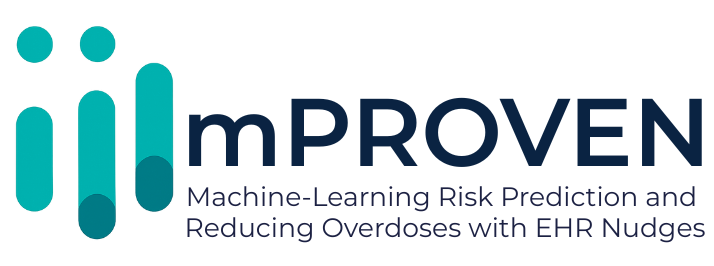
PI: Walid Gellad, MD, MPH
Funding Source: NIH/NIDA
NCT06806163
July 2022 - April 2027
This project proposes to reduce opioid overdoses and potentially unsafe opioid prescribing by combining a machine learning-based risk prediction model with a behavioral nudge in the electronic medical record. The team will develop an opioid overdose risk prediction algorithm with UPMC electronic medical record data, then design and pilot test a nudge intervention in the EHR, and conduct a randomized clinical trial of the algorithm plus nudge intervention in UPMC primary care practices, to see how the intervention affects important outcomes for opioid safety. This work is a continuation of Dr. Gellad’s NIH R01 “Using Machine Learning to Predict Problematic Prescription Opioid Use and Opioid Overdose.”
Ethical Implementation of Machine Learning for Opioid Risk Prediction
This supplement to the mPROVEN study addresses a critical gap in the use of machine learning in healthcare. While ML-based risk prediction algorithms hold promise for improving clinical decision-making, they also raise ethical and implementation challenges that, if overlooked, could worsen disparities, erode trust, or cause unintended harm.
Through this project, CP3 is developing and disseminating a practical “playbook” to help stakeholders—including researchers, clinicians, and policymakers—anticipate and mitigate these risks when designing and implementing ML-based opioid risk prediction tools. This work will provide a model for advancing innovation responsibly, ensuring that new technologies improve care equitably and sustainably.

